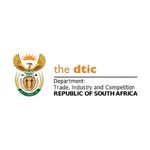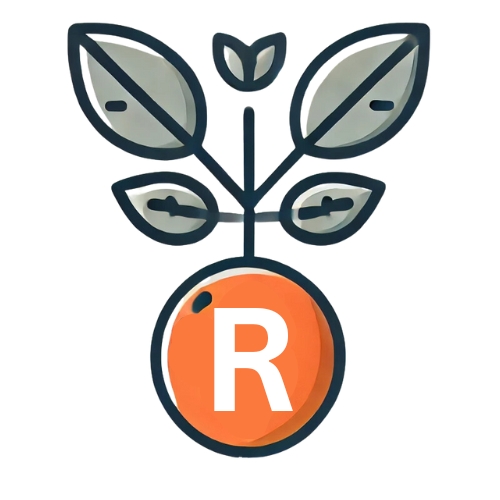
Business grants offer South African entrepreneurs a valuable opportunity to access funding without the obligation of repayment. Whether used to expand operations, invest in equipment, or support training initiatives, grants can play a crucial role in the growth of small and medium-sized enterprises. However, accessing these funds requires careful planning, a strong business case, and an understanding of where and how to apply.
Key Takeaways
- Business Grants Provide Non-Repayable Funding: Business grants offer financial support without the need for repayment, helping businesses invest in growth, equipment, training, or expansion.
- Eligibility Criteria And Application Requirements Are Strict: Applicants must meet specific conditions and prepare detailed proposals, including business plans, budgets, and measurable objectives to qualify for grant funding.
- Access To Grants Is Broad But Competitive: South Africa offers a wide range of grants through agencies like the IDC, NEF, and TIA, but the application process can be lengthy and highly competitive due to strict usage conditions and extensive paperwork.
About Arcadia Finance
Get a Loan You Can Trust with Arcadia Finance. Apply with ease — no application fees, no stress. Choose from 19 trusted lenders, all registered with South Africa’s National Credit Regulator. Enjoy a simple, secure process designed to fit your financial goals.
What Is A Business Grant?
A business grant refers to financial assistance provided to a business, intended to support its growth and expansion. This funding can be used for a variety of purposes, such as improving staff training, purchasing new equipment, or expanding into different markets. Business grants are generally awarded by government bodies or private organisations and, unlike business loans, do not require repayment.
Types Of Business Grants
In South Africa, there are primarily two categories of business grants: full grants, which provide funding for the entire project cost, and cost-sharing grants, which contribute only a portion of the required amount, with the business expected to cover the balance. Grants within South Africa are most often distributed by government agencies, although certain private companies also extend grant funding to assist small businesses in their development.
A wide range of grant opportunities can be found by visiting the official websites of organisations such as the Industrial Development Corporation (IDC), the National Empowerment Fund (NEF), and the Technology Innovation Agency (TIA).

Business Grants Requirements
Applicants must prepare a detailed business grant proposal to accompany their application. This proposal should present an executive summary, a statement of need, and basic company information.
Below are the essential components your grant proposal should include:
- Cover Letter: The first document the grant reviewer will see is your cover letter. It must provide a clear overview of your proposal and explain what makes your business distinctive compared to other applicants. Highlight your unique selling proposition clearly and professionally.
- Executive Summary: This section should present a clear and concise overview of the proposal. It must outline the market gap your business addresses, the problem it solves, or the opportunity it seeks to create. The executive summary should also reference your business goals, key findings, objectives, and any important recommendations.
- Basic Company Information: Include fundamental details about your organisation, such as your annual budget, revenue streams, and any other sources of income. It is also necessary to provide a list of executive officers and an organisational structure chart.
- Need Statement: Grant reviewers need to fully understand why you are requesting funding. Your need statement should explain the issue you intend to address and demonstrate that the grant money will be applied to a meaningful and specific purpose. It should summarise the key points needed for the reviewer to make an informed decision.
- Purpose: Clearly describe how the funding will be allocated. Specify whether it will be used for purchasing specialised equipment, hiring employees, or covering necessary business travel expenses.
- Evaluation: Outline the data you intend to track in order to assess the impact and effectiveness of the grant funding. Explain how you will measure success and report on the outcomes achieved.
- Budget: Provide a detailed financial estimate for completing your project. Mention that grants are often intended for specific objectives and purposes. Include any anticipated additional income or other funding sources that may support the project.
- Documentation: Be prepared to submit supporting materials such as financial statements, tax-exemption certificates (if applicable for non-profit organisations), and any other relevant documents that may strengthen your application.

Where To Apply For Business Grants
South Africa offers a wide variety of business grants — numbering in the hundreds — but small and medium-sized enterprises (SMEs) often face difficulty identifying the most suitable option. Some grants cater to specific industries, while others are available to businesses across any sector. If you are considering applying for financial support, the following institutions are worth reviewing:

Industrial Development Corporation (IDC)
The Industrial Development Corporation is a government-owned development finance institution established to encourage economic expansion and industrial growth within South Africa. The IDC offers funding support ranging from R1 million to R1 billion for individual projects, focusing on sustainable development initiatives.

Small Enterprise Development And Finance Agency (SEDFA)
The Small Enterprise Development and Finance Agency combines several government agencies: the Small Enterprise Development Agency (Seda), the Small Enterprise Finance Agency (SEFA), and the Co-operative Banks Development Agency (CBDA). This institution provides both financial and non-financial assistance tailored to the needs of small enterprises across South Africa.

National Empowerment Fund (NEF)
The National Empowerment Fund was established to promote and facilitate greater black participation in South Africa’s economy. The NEF offers a range of financial and advisory services specifically for black-owned businesses, helping them to establish, grow, and sustain their operations.

Technology Innovation Agency (TIA)
The Technology Innovation Agency was formed to advance innovation and technological progress within South Africa. It provides financial assistance, resources, and support programmes aimed at entrepreneurs, startups, and businesses engaged in technology and innovation-based projects.

Department Of Trade, Industry And Competition (DTIC)
The Department of Trade, Industry and Competition provides funding solutions and opportunities designed to support SMEs and promote fair competition across various sectors. The DTIC works to enhance access to markets and to help businesses achieve long-term growth and sustainability.

How To Write A Business Grant Proposal
Writing a business grant proposal demands careful attention to detail and a clear presentation of your objectives. It is important to express your ideas in plain English, avoiding technical jargon or complicated language that could cause confusion. Every point should be straightforward, allowing the reviewer to quickly grasp the purpose and requirements of your proposal.
Be Clear About Your Objectives
When outlining your plans, be specific about what your business aims to achieve. Vague descriptions reduce the strength of your application. You should clearly explain how your business activities align with the qualifying criteria for the grant. Address each eligibility requirement directly, demonstrating that your business meets all necessary conditions.
Define Success And Measurement
It is vital to explain what success will look like if the grant is awarded. Setting out clear aims and establishing well-defined criteria will allow the grant provider to measure your progress. These benchmarks should be realistic and measurable, giving funders confidence that the grant will be used effectively.
Highlight Your Team’s Capabilities
Funders will want reassurance that your business has the ability to deliver the proposed project successfully. Provide evidence of your team’s experience, qualifications, and past achievements. This shows that your organisation is equipped to use the funding wisely and achieve a return on the investment made by the grant provider.
Create A Detailed Budget
A clear and specific budget is essential. Break down how every part of the grant funding will be used. Avoid generalised estimates, and instead present detailed figures that account for all major costs. This demonstrates financial responsibility and provides assurance that the funds will be managed properly.
Consider Professional Support
Writing a strong grant proposal can be challenging. For many businesses, it may be worthwhile to seek the help of a professional grant writer. These specialists understand the expectations of funders and can assist in creating a well-structured, persuasive application.
Pros And Cons Of Business Grants
Pros Of Business Grants
- No Repayment Required: Since a business grant is not a loan, you are not expected to repay the funds received.
- Support From Government Structures: If you meet the eligibility criteria, the government is generally willing to provide financial support to help your business get started or grow.
- Accessible To Targeted Groups: Applicants who are young, female, or previously disadvantaged and who can present a well-structured business plan may find the entry requirements more accessible.
- Significant Funding Opportunities: Those who meet all conditions may receive a meaningful amount of funding to support their operations or expansion plans.
Cons Of Business Grants
- Strict Eligibility Requirements: Grant programmes often have detailed criteria, and many applicants may find themselves excluded based on technicalities or specific requirements.
- Conditions On How Funds Are Used: In some cases, the funds must be allocated towards specific projects or initiatives that align with government priorities, limiting flexibility.
- Lengthy Application Process: The process typically involves extensive paperwork, formal interviews, and strict documentation. If not submitted correctly, delays can stretch the application timeline over several months or even years.
Alternative Funding Options If You Do Not Qualify For A Grant
Securing a business grant can be challenging, and not every applicant will meet the strict eligibility requirements. Fortunately, there are several alternative funding options available to South African businesses that still need financial support to grow or sustain their operations.

Small Business Loans
Many banks and alternative lenders in South Africa offer small business loans with varying terms and conditions. While loans require repayment with interest, they can be a flexible solution for businesses that need working capital, equipment financing, or funding for expansion projects.

Venture Capital
Aavailable for businesses, venture capital is with high growth potential, particularly in sectors such as technology, renewable energy, and manufacturing. Venture capitalists invest funds in exchange for equity in the company. This option is often suitable for businesses with strong scalability and innovative ideas.

Angel Investors
Angel investors are individuals who provide funding to promising businesses, typically in exchange for ownership equity or convertible debt. They not only contribute financially but may also offer valuable mentorship and industry connections. This type of funding can be particularly useful for startups and early-stage businesses.

Crowdfunding
Crowdfunding platforms such as Thundafund and Uprise.Africa allow businesses to raise capital by reaching out to a large number of potential backers. Contributors typically provide small amounts of funding in return for rewards, products, or equity stakes. This option can also help businesses validate their product or service in the market.

Government Support Programmes
Beyond grants, the South African government offers a range of financial support programmes such as subsidised loans, tax incentives, and incubation services. Programmes offered by the Small Enterprise Finance Agency (SEFA) and the National Youth Development Agency (NYDA) provide funding options targeted at small, youth-owned, and previously disadvantaged businesses.

Supplier And Retailer Financing
Some suppliers and large retailers offer financing arrangements for businesses within their supply chain. This type of funding may help with inventory purchases, production expansion, or meeting large orders, often with more flexible repayment structures tied to the business’s cash flow.
Conclusion
Business grants can provide valuable financial assistance to South African businesses looking to grow, innovate, or improve their operations. Unlike loans, grants do not require repayment, but securing them can be challenging due to strict eligibility requirements and detailed application processes. Various institutions, such as the IDC, NEF, and TIA, offer targeted support for businesses across different sectors. Applicants must be prepared to present thorough proposals, define clear objectives, and demonstrate strong organisational capabilities. While the process can be lengthy, successful applications offer meaningful funding opportunities that can significantly impact a business’s development.
Frequently Asked Questions
A business grant is financial support awarded to businesses by government agencies or private organisations, which does not require repayment. It is intended to fund specific projects, business growth initiatives, or improvements.
You can apply through organisations such as the Industrial Development Corporation (IDC), National Empowerment Fund (NEF), Technology Innovation Agency (TIA), and the Department of Trade, Industry and Competition (DTIC).
Applicants typically need a cover letter, executive summary, business plan, budget breakdown, need statement, organisational structure, and supporting documentation such as financial statements.
The process can vary but often takes several months or longer. Delays may occur if paperwork is incomplete or if additional information is requested by the grant provider.
Yes, many grants require that the funds be used for specific purposes that align with the goals of the grant provider, such as expanding operations, purchasing equipment, or creating jobs.
Fast, uncomplicated, and trustworthy loan comparisons
At Arcadia Finance, you can compare loan offers from multiple lenders with no obligation and free of charge. Get a clear overview of your options and choose the best deal for you.
Fill out our form today to easily compare interest rates from 19 banks and find the right loan for you.




